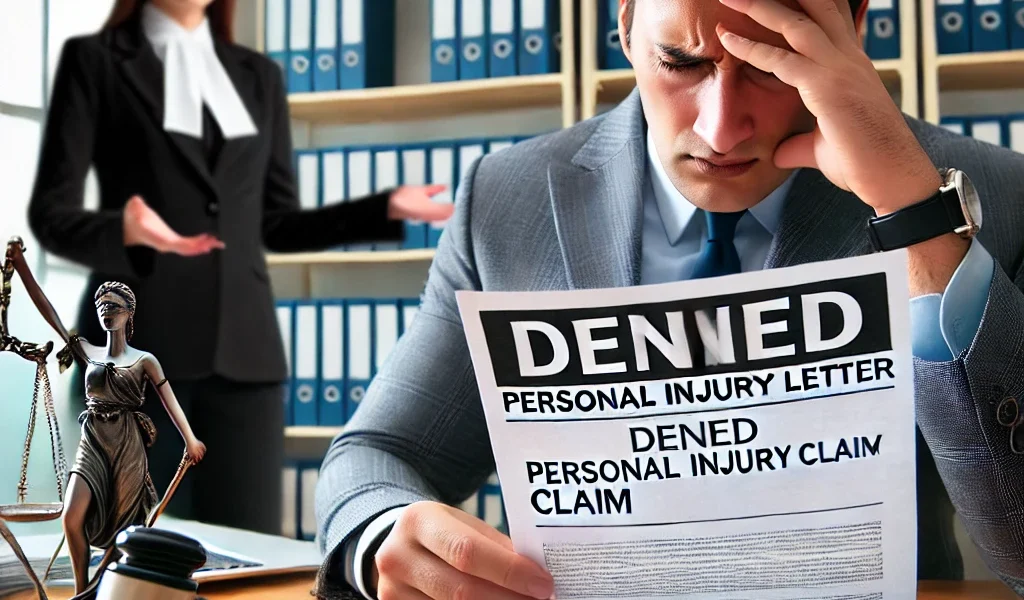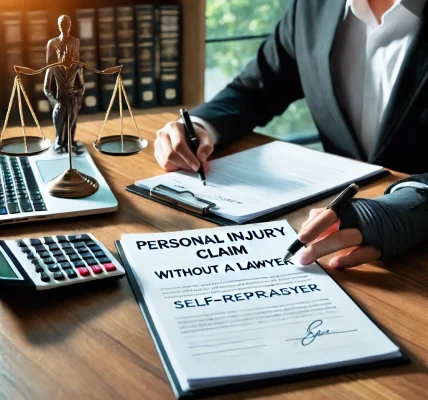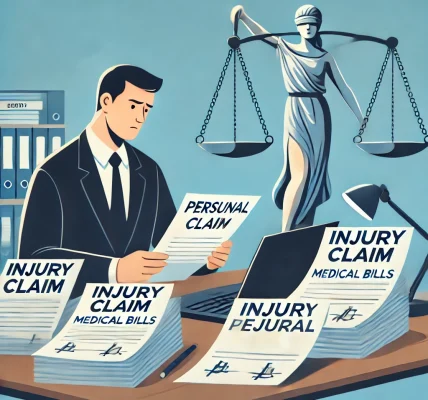Suffering an injury due to someone else’s negligence can be physically, emotionally, and financially draining. Filing a personal injury claim is often the first step toward recovering compensation for medical expenses, lost wages, and pain and suffering. However, insurance companies do not always approve claims, and many victims face claim denials for various reasons.
If your personal injury claim has been denied, do not panic. A denial does not necessarily mean the end of your case. You still have options to fight back and recover the compensation you deserve. This guide will walk you through the common reasons for claim denials, what to do next, and how to appeal the decision effectively.
Common Reasons Why Personal Injury Claims Are Denied
Understanding why your claim was denied is the first step in determining how to proceed. Here are some common reasons insurance companies reject personal injury claims:
1. Lack of Evidence
Insurance companies require substantial proof that the accident caused your injuries. If there is insufficient medical documentation, witness statements, or accident reports, they may deny your claim.
2. Disputes Over Liability
If the insurance company believes that their policyholder was not at fault or that you were partially or fully responsible for the accident, they may reject your claim.
3. Failure to Seek Immediate Medical Treatment
Delays in seeking medical care can lead insurers to argue that your injuries were not serious or were caused by something else instead of the accident.
4. Pre-Existing Conditions
If you have a pre-existing injury or medical condition, the insurer may claim that your injuries were not caused by the accident and use this as a reason to deny your claim.
5. Missed Deadlines
Every personal injury claim must be filed within a specific timeframe, known as the statute of limitations. Missing deadlines can result in an automatic denial.
6. Lack of Coverage
If the at-fault party’s insurance policy does not cover the accident, your claim may be denied. This can also happen if the policy limits have been exceeded.
7. Bad Faith Insurance Practices
Some insurance companies act in bad faith, intentionally delaying or denying legitimate claims to avoid payouts.
Steps to Take If Your Personal Injury Claim Is Denied
A denial does not mean you should give up. Follow these steps to challenge the decision and improve your chances of receiving compensation.
1. Review the Denial Letter Carefully
Insurance companies are required to provide a reason for denying your claim. Read the denial letter thoroughly to understand the specific reasons given. This will help you determine the best course of action.
2. Gather Additional Evidence
If your claim was denied due to lack of evidence, collect additional proof to support your case. This can include:
- Medical records showing the extent of your injuries
- Photographs or videos of the accident scene
- Witness statements
- Police or accident reports
- Expert testimony (such as medical experts or accident reconstruction specialists)
3. Consult a Personal Injury Attorney
If you haven’t already done so, now is the time to consult an experienced personal injury attorney. A lawyer can:
- Review your claim denial
- Identify errors or unfair insurance practices
- Help gather additional evidence
- Negotiate with the insurance company
- File a lawsuit if necessary
4. File an Appeal
Most insurance companies have an appeals process for denied claims. Work with your attorney to draft a strong appeal letter that includes:
- A clear argument explaining why the denial was incorrect
- Supporting evidence (medical records, witness statements, expert opinions)
- A request for reconsideration
5. Negotiate with the Insurance Company
Insurance companies often deny claims hoping that victims will give up. However, negotiation can sometimes lead to a settlement. Your lawyer can negotiate on your behalf to secure a fair settlement without going to court.
6. File a Lawsuit
If the insurance company refuses to settle fairly, you may need to file a personal injury lawsuit. This legal action can force the insurer to reconsider and may result in a higher compensation amount.
Preventing a Personal Injury Claim Denial in the Future
While you cannot control how an insurance company will respond, you can take steps to strengthen your case and reduce the risk of a denial:
1. Seek Immediate Medical Treatment
Prompt medical attention provides official documentation of your injuries and proves they were caused by the accident.
2. Gather Strong Evidence
Document everything related to your accident, including photos, medical bills, witness contact information, and police reports.
3. Avoid Giving Recorded Statements
Insurance adjusters may ask for a recorded statement. Do not provide one without consulting a lawyer, as anything you say could be used against you.
4. Follow Your Doctor’s Treatment Plan
Failing to follow prescribed medical treatments can give insurers a reason to argue that your injuries are not as severe as claimed.
5. Work with an Experienced Attorney from the Start
Hiring a personal injury lawyer early in the process can help prevent costly mistakes and improve your chances of success.
Conclusion
Having your personal injury claim denied can be frustrating and overwhelming, but it does not mean you are out of options. By understanding why claims are denied, gathering strong evidence, filing an appeal, and seeking legal help, you can fight back against unfair denials and secure the compensation you deserv.




